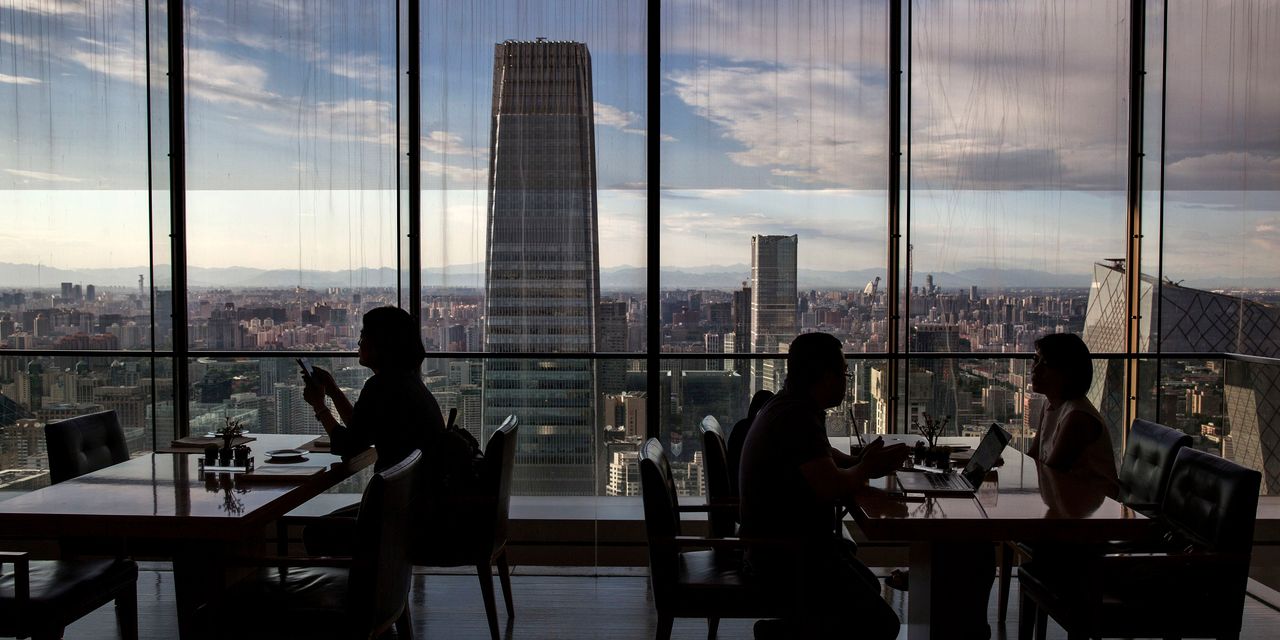As China’s economy cools into a new normal of slower growth, its track record is taking on a particular shape—a long expansion culminating in a peak before beginning a downward slope.
Other areas of China’s development are assuming this same form: birth and marriage rates, growth in home sales and prices, youth employment, and the population as a whole.
It’s easy to pass these off as natural outcomes of a society attaining a certain level of affluence. Wealthier countries produce fewer babies, for instance, and their economies temper into single-digit growth.
Yet another metric has taken on this familiar shape despite precedent among maturing economies. Private companies, which enjoyed a 40-year explosion as a proportion of China’s economy, are now ceding market share to the dinosaurs of state enterprises.
“The continuous decline of the private-sector share among China’s largest companies over four semesters in a row through mid-2023 does not support optimism about the future dynamism of China’s economy,” wrote Tianlei Huang and Nicolas Veron of the Peterson Institute for International Economics.
Among the 100 largest listed companies, measured by market capitalization, the share of companies that are majority-owned by the Chinese state rose to 61% from 57.2% in the first half of 2023, according to the institute. The share of the private sector, defined as firms with less than 10% state ownership, in the same period dropped below 40% for the first time since the end of 2019.
Last year, even while anti-Covid policies nearly froze China’s economic activity, private investment growth remained positive. But in the first half of this year, when everyone expected a vibrant rebound of consumption and innovation, private-led fixed asset investment fell 0.2% compared with the same period last year.
“At a time when there are no restrictions on movement anymore, an outright contraction in private investment raises serious concerns on the vitality of private enterprises,” Huang told Barron’s.
A survey by one of China’s leading business schools found that entrepreneurs of small and medium enterprises are worried about a range of issues. But investor confidence, reluctant consumers, and paltry government assistance seem to be at the core of the matter.
Government promises to revive the private sector have been a top theme since Covid restrictions were dropped in January. But actual policies haven’t helped, some business managers told Barron’s.
Xiao Fan, manager of upscale whiskey bar Still Fun in the metropolis of Chengdu, told Barron’s that revenue remains 30% below its prepandemic level. As for profit, he called it “meager,” and added that “my salary has been cut roughly the same amount.”
Spurring consumer spending with cash transfers or increased confidence would boost private businesses, experts say. But policy makers don’t seem to understand, or don’t have the will power, to adequately address the problem.
Last week, officials at a press conference for the State Council—China’s cabinet—cited weak demand as stemming from product safety concerns, problems with logistics networks, underdeveloped sales channels, and a dearth of “niche” products. The deputy director of China’s national economic planning agency cited a lack of “elderly-friendly smartphones” as a consumption impediment.
“No, no, no,” consultancy Trivium, which analyzes the Chinese economy, said of these diagnoses. “Consumers aren’t spending because income growth has slowed and the economic outlook remains uncertain,” the group’s analysts wrote on Tuesday.
Others agreed. “Despite years of promises, Beijing has never implemented meaningful demand-side stimulus. The Party frequently talks the talk, but in the end just keeps going back to the well with supply-side measures,” Leland Miller, CEO of consultancy China Beige Book, told Barron’s.
In a country reluctant to criticize the government, citizens and private businesspeople have taken to mocking the perceived paltry measures at boosting consumption and reviving the private sector.
One policy measure included tax breaks for small and medium firms. “The tax payable has dropped from 3% to 1%, and the government has issued consumer coupons to stimulate consumption,” said Fan, from the Chengdu bar. “But it doesn’t help us at all.”
Peterson’s Huang said his team first surmised that the shrinking share of the private sector was caused by a decline in internet platforms. But they found the sector’s market capitalization has actually grown since 2021.
“This means the relative decline of the private sector is now broad based in terms of industry, instead of being concentrated on platforms. In other words, without the somewhat recovery of internet platforms, the drop in the private sector reflected in our latest update would be even more visible. This is of course worrying,” he said.
Write to [email protected]
Read the full article here





